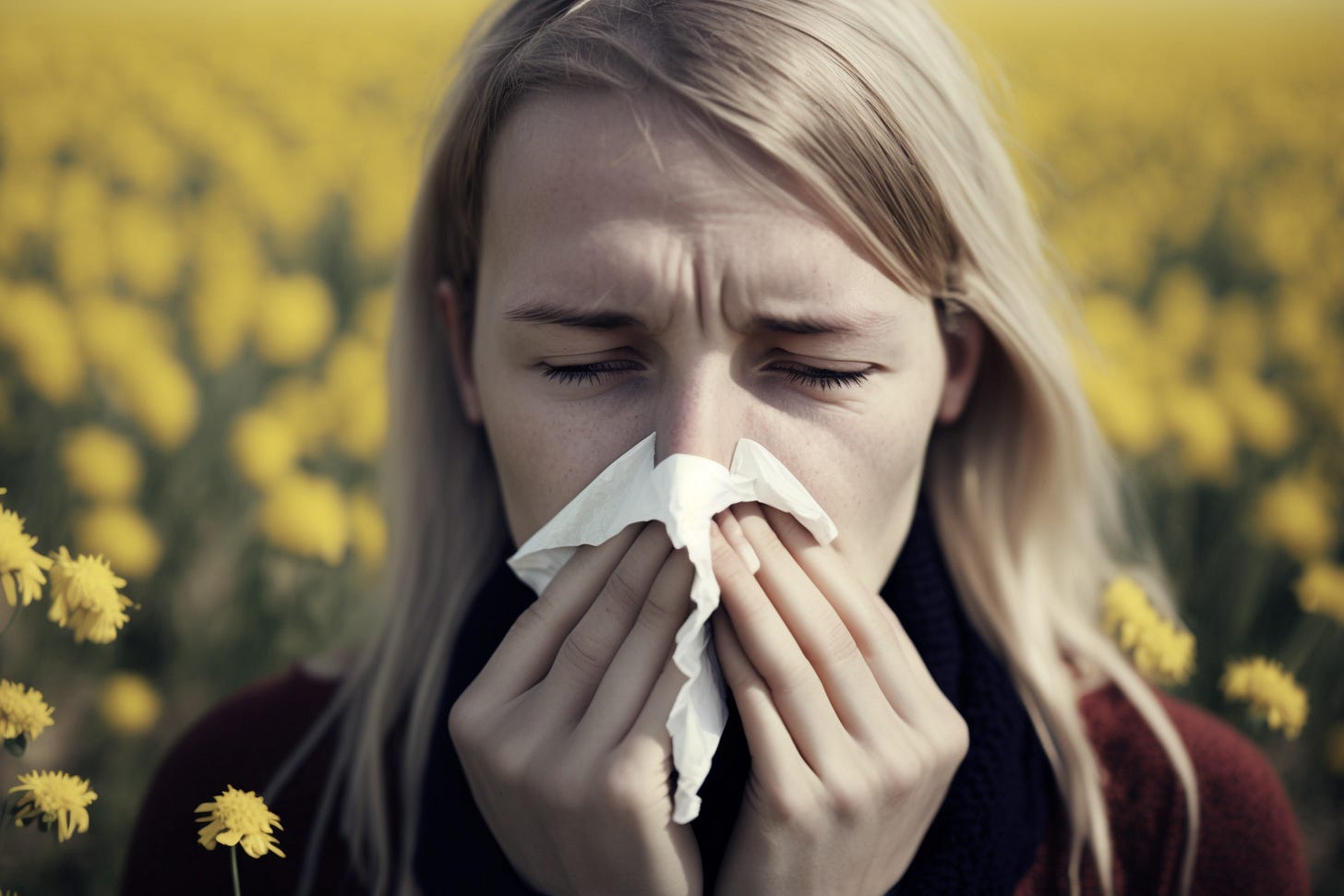How do I Manage My Allergies
Living Well with Allergies: Tips and Strategies for Managing Symptoms and Improving Quality of Life
Allergies can be a challenge to manage, especially if you’re unaware of what triggers your allergic reactions. Depending on whether you suffer from seasonal or year-round allergies, coping with your symptoms may involve changing where and how often you're exposed to allergen sources as well as taking medication.
Pollen Allergy Management: A primary concern amongst those who suffer from seasonal allergy symptoms is high pollen counts which trigger sneezing, itchy nose and eyes, a runny nose, nasal congestion, and sometimes wheezing. Typically, care involves looking at local weather reports detailing when peak times for pollen counts are going to occur so corresponding treatments (over-the-counter medications) can be taken right before this period begins. This practice will help lessen severity of symptoms during prime hay fever season(s). In addition, avoiding activities outdoors at these times – such as lawnmowing, garden work, or walking pets – should reduce irritation felt.
Dust Mite Allergy Management: Recurring indoor problems are often due primarily to bedding. Cloth materials and carpets are home to millions of microscopic bugs that people can be allergic to. Many possible solutions exist to help minimize the risk of an allergic reaction, however. One thing that helps is washing linens in hot water – effectively removes these creatures instantly. Another is storing clothes and bedding inside plastic bags. Invest in anti annulment covers for your mattresses and pillows. And finally, vacuum regularly.
Medication for Pet Dander/Animal Hair: Dealing with sore throats and coughing? If you’re an owner of a beloved four legged companion, then you require a different approach completely. The first thing you’ll have to do is start giving regular baths to your pet. Bathing your pet regularly reduces overall allergen levels. Next, consider steam cleaning your home professionally. This can help remove allergens that are sitting in your carpets and furniture.
Allergic reactions can range from annoying to life threatening, so knowing how to manage a reaction is essential. Whether your allergies are hay fever-related or caused by food, an insect bite or sting, or medication; these tips will help you respond quickly and effectively when one strikes.
1) Take medicine: If you know the trigger of your allergy take any medications prescribed by your doctor including antihistamines like Claritin (loratadine) or Benadryl (diphenhydramine); as well decongestants such as Sudafed may be necessary depending on what prompted the allergic reaction in the first place. Talk with a health care provider before taking over-the-counter drugs for possible interactions between medicines that might make some combinations unsafe for use together.
2) Monitor symptoms and seek medical attention if needed: Be aware of changes in severity of symptoms – pay close attention if breathing becomes more labored than expected during treatment measures at home and call 9-11 immediately. If there are signs indicating potential serious consequences such as rashes spreading rapidly across multiple parts/areas of the body, slurred speech due to swollen tongue etc., you need to get professional assistance fast!
3) Make lifestyle modifications: Avoid foods associated with allergens along with pet dander, and possibly the outdoors if being outside worsens your condition – all this info needs noting down and keeping records since long term patterns could emerge and analyzing them could lead to potentially identifying hidden triggers causing issues initially thought unrelated. Your doctor may put other precautions into effect, tailoring them according to specific diagnosis made in light of your ongoing history, checkups, and exams conducted. Find out if performing certain exercises inadvertently causes increased sensitivity – dusty training environments versus humidity prone gyms – follow routines recommended, and nonmedical methods derived from personal experiments. Also, be sure to identify the fitness level you’ve reached after a period of trying various practices without aggravating your existing condition.
In conclusion, allergies have become increasingly common around the world. Therefore, it’s important that you’ve got a plan in place if ever you suffer a flare up. Make sure to avoid situations that could exacerbate symptoms, and to prevent complications.




